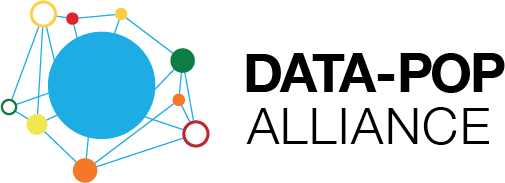
Multidimensional Poverty Index to fight Poverty and Strengthen Livelihoods in Urban Settlements (MPI+)
Data-Pop Alliance
Civil Society
Sloan School of Management at Massachusetts Institute of Technology Latin American Office (MSLAO) and Gerando Falcões
Regional
The primary objective of the MPI+ is to develop a more comprehensive and accurate tool for assessing and addressing poverty in urban informal settlements. Traditional poverty metrics often overlook the complex realities faced by residents in these areas, where economic deprivation intersects with limited access to essential services, exposure to environmental risks, and social inequalities.
MPI+ aims to fill this gap by integrating traditional poverty measures with non-traditional data sources, including satellite imagery, geolocated data, and call detail records. This enriched methodology allows for a deeper analysis of the specific dimensions of poverty affecting communities, such as healthcare access, education, and safety.
By identifying distinct deprivation profiles, MPI+ seeks to inform and drive more effective public policies and interventions. The ultimate goal is to improve the quality of life for those living in marginalized urban settings, contributing to sustainable poverty reduction and enhanced resilience.
The Multidimensional Poverty Index Plus (MPI+) is a groundbreaking initiative aimed at tackling the multifaceted challenges of poverty in urban informal settlements, which are often only partially represented in traditional economic indicators. MPI+ goes beyond traditional MPI metrics like measuring financial data and incorporates non-traditional data sources such as satellite imagery, geolocated data, and call detail records to provide a more nuanced understanding of poverty.
By analyzing multiple dimensions of poverty, MPI+ identifies specific areas of deprivation, such as lack of access to services or exposure to environmental hazards. This comprehensive approach enables the design of more effective public policies and interventions tailored to the unique needs of these vulnerable communities, ultimately contributing to poverty reduction and improved livelihoods.
MPI+ is designed to address the nuanced nature of poverty in urban informal settlements, where traditional economic metrics often fall short. The key activities of MPI+ involve leveraging advanced data collection and analysis techniques to create a comprehensive understanding of poverty's dimensions in these (often) overlooked communities.
Key Activities
MPI+ employs a mixed-methods approach that combines traditional poverty measures with non-traditional data sources, such as satellite imagery, geolocated data, and call detail records. These sources provide detailed insights into various aspects of deprivation, such as access to healthcare, education, and exposure to environmental risks. The project also includes participatory mapping exercises to incorporate local knowledge and identify variations in service provision based on race, gender, and other intersectional factors.
Strategies
The strategies behind MPI+ are centered on flexibility, replicability, and deepening the understanding of poverty. By combining multiple data sources, MPI+ creates a nuanced profile of deprivation that can be tailored to specific contexts. This approach allows the project to be easily replicated in different urban settlements, making it scalable across geographic regions. The partnership with organizations such as MIT Sloan’s Latin America Office ensures that local expertise is integrated into the analysis, further enhancing the project's relevance and impact.
Intended Outcomes
The intended outcomes of MPI+ are both immediate and long-term. In the short term, MPI+ aims to provide a more accurate assessment of poverty in the targeted urban settlements, identifying specific areas of deprivation that require urgent attention. This data-driven approach is expected to inform more effective public policies and interventions, directly improving the quality of life for those living in these communities. In the long term, the project seeks to contribute to sustainable poverty reduction by creating a model that can be adapted and scaled to other regions, ultimately leading to improved resilience for vulnerable populations.
Successful completion of the various activities and deliverables in this pilot contribute to the measures of success our team employs. With our strong emphasis on inclusion and accessibility, important indicators of success include representation across gender and racial identity in our various community groups.
By October 2024, our team plans to consolidate project outputs into composite indicators and prepare a definitive deliverable that will present findings to inform policy-making.
